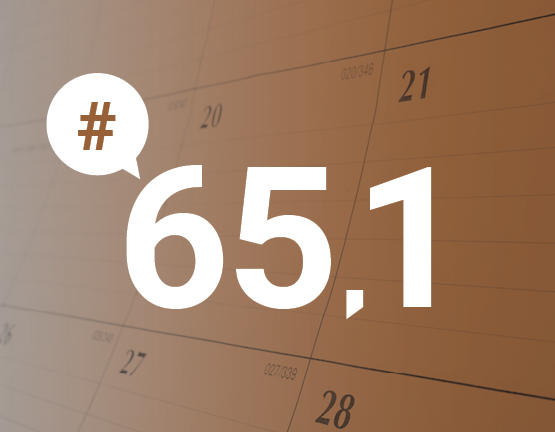It’s now official. The COVID-19 pandemic has weighed heavily on Quebec’s public finances, resulting in a $15 billion deficit for last year. Finance Minister Éric Girard announced that number on March 25 when tabling his 2021-2022 budget – confirming a negative balance that contrasts with the balanced budget the Minister was forecasting for fiscal 2020-2021 a year ago.
Minister Girard is projecting a gradual return to a zero deficit over a period of seven years. The annual deficit is expected to decline gradually, starting next year, until a balanced budget is achieved in 2027-2028.
From the perspective of taxpayers, who have been affected by the pandemic to varying degrees, here are five major strategic priorities that emerge from the Girard budget.
1. No tax increase for individuals…
First it should be noted that the minister, who calls his fiscal plan a “pandemic budget,” is not intending to use tax increases at this time to set the financial situation straight. In fact, he feels that Quebec’s net debt to GDP ratio, which is in the 45% range, is still under control and does not require immediate offsetting measures. “Quebec must do things in the right order,” he said.
2. …but a tax reduction for small businesses
On the other hand, the government says that it recognizes the enormous financial pressure the pandemic has put on small and medium-sized businesses, and is planning measures to give them some breathing room. If you yourself own a small business, you will no doubt wish to note that the tax rate for companies eligible for the small business deduction (SBD) will be dropping from 4.0% to 3.2%. The SBD applies to the first $500,000 of taxable income. Furthermore, if you are planning to acquire manufacturing and processing equipment, computer hardware or management software packages, be aware that the investment and innovation tax credit will be doubled, and may even reach 40% in some regions. Among other measures, the new budget also provides for a tax holiday for digitization projects. Finally, the government also wants to maintain two existing measures for the next fiscal year: the Concerted Temporary Action Program for Businesses (PACTE) and the Emergency Assistance Program for Small and Medium-Sized Businesses (PAUPME).
3. Support for tourism and culture
If you work in the tourism or cultural sectors, and especially if you run a tourism or cultural business, you have no doubt been facing enormous challenges in the past year. Given this situation, the government is providing financial support for these two sectors. For tourism, $204.9 million will be invested over six years to stimulate private investment in the sector, galvanize economic activity by improving tourism infrastructure, and promote Quebec’s tourism industry within the province and throughout Canada, among other objectives.
For the cultural sector, the budget provides $392 million between now and fiscal 2025-2026 to promote culture ($214 million), promote Quebec’s cultural heritage ($74.4 million), and defend and strengthen the status of French as the official language and common language of Quebec ($103.6 million). Note that the segment for promoting culture includes an increase of $147 million in the Cultural Sector Economic Recovery Plan launched in June 2020. Starting with an initial amount of $400 million, this Plan already received an $83 million enhancement last fall.
4. Additional billions for health care
With the pandemic having brought to light the considerable needs of Quebec’s health care system, the budget has provided $10.3 billion for health care over five years, including $2.9 billion to be invested during 2021-2022. If you work in the health care sector, you might want to note that out of the total $10.3 billion, $7 billion will be devoted to overcoming the public health crisis, $2 billion will be for strengthening services for seniors and $1.3 billion will be for enhancing health care and services. Note that money has also been earmarked to meet workforce needs in nursing and nursing science between now and 2025-2026.
More specifically in respect of seniors, the minister announced an increase in financial assistance for seniors living in an apartment building, as well as an increase from 35% to 45% in the refundable tax credit for home-support services. Remember that, unlike a non-refundable tax credit, a refundable tax credit is offered regardless of the person’s tax balance owing. Together, these two measures will represent an investment of nearly $231 million this year.
5. Measures for students
Recognizing that postsecondary students have seen their financial situation deteriorate since March 2020, the minister has proposed two measures for them. First, they are eligible for financial aid of up to $200, i.e., a lump sum of $100 for each of the fall 2020 and winter 2021 terms. As well, interest payments on their student loans will be eliminated for one year, from April 1, 2021, to March 31, 2022.
More generally, the budget includes initiatives totalling close to $1.5 billion over five years for the education sector. In particular, $85 million is allocated to deploy more digital solutions for students, while $60 million is planned to meet students’ needs with regard to mental health.
Obviously, this is just a brief overview. To find out more, take a look at the documentation published by the Ministère des Finances. You'll find it here.
The following sources were used to prepare this article.
Actualis, “Another budget, another surplus.”
Finance et investissement, “De multiples mesures visent les PME.”
Ministère des Finances du Québec, “Budget 2021-2022.”
Radio-Canada, “Budget du Québec 2021-2022.”




